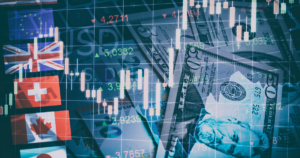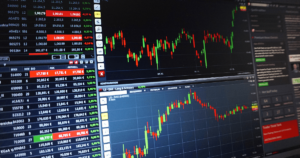Introduction:
The world of forex trading can be complex and challenging, especially for beginners. One crucial aspect of navigating this market is understanding forex brokers. Forex brokers play a vital role in connecting traders to the global interbank market, enabling them to buy and sell currencies and speculate on their value. In this comprehensive guide, we will delve into the intricacies of forex brokers, exploring their role, how they work, how to choose the right broker, and more. By the end of this guide, you will have a solid understanding of forex brokers and be equipped to make informed decisions in your trading journey.
1. What is a Forex Broker?
A forex broker is a financial intermediary that enables traders to access the foreign exchange market. Unlike stock markets, the forex market operates 24 hours a day, five days a week, and involves the buying and selling of currencies. Forex brokers provide traders with trading platforms, tools, and market access to execute trades, participate in price speculation, and manage their portfolios.
2. The Role of Forex Brokers
Forex brokers act as intermediaries between traders and the global interbank market. They facilitate the execution of trades, provide liquidity, offer leverage, and ensure price transparency. Without forex brokers, individual traders would not have direct access to the interbank market, which requires significant capital and infrastructure.
3. How Forex Brokers Work
Forex brokers operate through different business models, such as retail forex brokers, ECN forex brokers, and forex market maker brokers. Retail forex brokers cater to individual traders, offering leverage and margin trading. ECN forex brokers connect traders directly with liquidity providers, while forex market maker brokers act as counterparties to traders’ orders.
4. Getting Started with a Forex Broker
To start trading with a forex broker, you need to open a trading account. This process involves choosing the right account type, completing the Know Your Customer (KYC) verification, making an initial deposit, and setting up the trading platform. Each step is important to ensure a smooth trading experience.
5. Evaluating the Legitimacy of Forex Brokers
Regulatory bodies play a crucial role in overseeing the operations of forex brokers. Trusted regulatory authorities, such as the CFTC (Commodity Futures Trading Commission) and the NFA (National Futures Association), enforce regulations to protect traders’ interests. Transparency, reputation, and client fund protection are essential factors to consider when evaluating the legitimacy of forex brokers.
6. Ensuring the Safety of Your Funds
Safeguarding your funds is paramount when choosing a forex broker. Reputable brokers utilize segregated accounts, where client funds are kept separate from the broker’s operational funds. Compliance with regulatory requirements, along with the availability of risk management tools, further enhances the safety of your funds.
7. Factors to Consider When Choosing a Forex Broker
When selecting a forex broker, several factors should be taken into account. These include regulation and compliance, trading costs and fees, the quality of trading platforms and tools, customer support, educational resources, and available account types and leverage. Considering these factors will help you find a broker that aligns with your trading preferences and goals.
8. Common Forex Broker Scams and How to Avoid Them
While the forex market provides ample opportunities, it is essential to be aware of potential scams. Unregulated brokers, fake brokers and identity theft, manipulation of prices and trades, and Ponzi schemes are some of the common scams in the forex industry. To avoid falling victim to these scams, it is crucial to conduct thorough research, choose regulated brokers, verify their credentials, and exercise caution when dealing with suspicious entities.
9. Key Takeaways
- Forex brokers play a vital role in facilitating trading in the foreign exchange market, connecting individual traders with the interbank market.
- There are different types of forex brokers, including retail brokers, ECN brokers, and market maker brokers, each operating with distinct business models.
- When choosing a forex broker, consider factors such as regulation, trading costs, available platforms and tools, customer support, and educational resources.
- Ensure the safety of your funds by selecting regulated brokers, verifying their compliance with regulatory requirements, and utilizing risk management tools.
- Be vigilant of common forex broker scams, such as unregulated brokers, identity theft, price manipulation, and Ponzi schemes, and take necessary precautions to protect yourself.
In conclusion, understanding forex brokersis essential for anyone venturing into the forex market. By grasping their role, how they operate, and the factors to consider when selecting a broker, you can enhance your trading experience and mitigate risks. Remember to prioritize safety, conduct thorough research, and stay informed to navigate the dynamic world of forex trading successfully.








